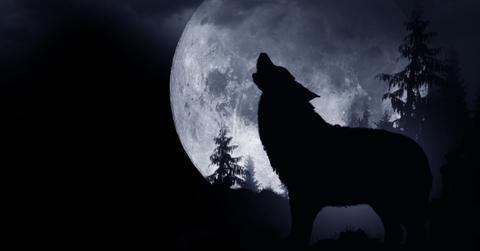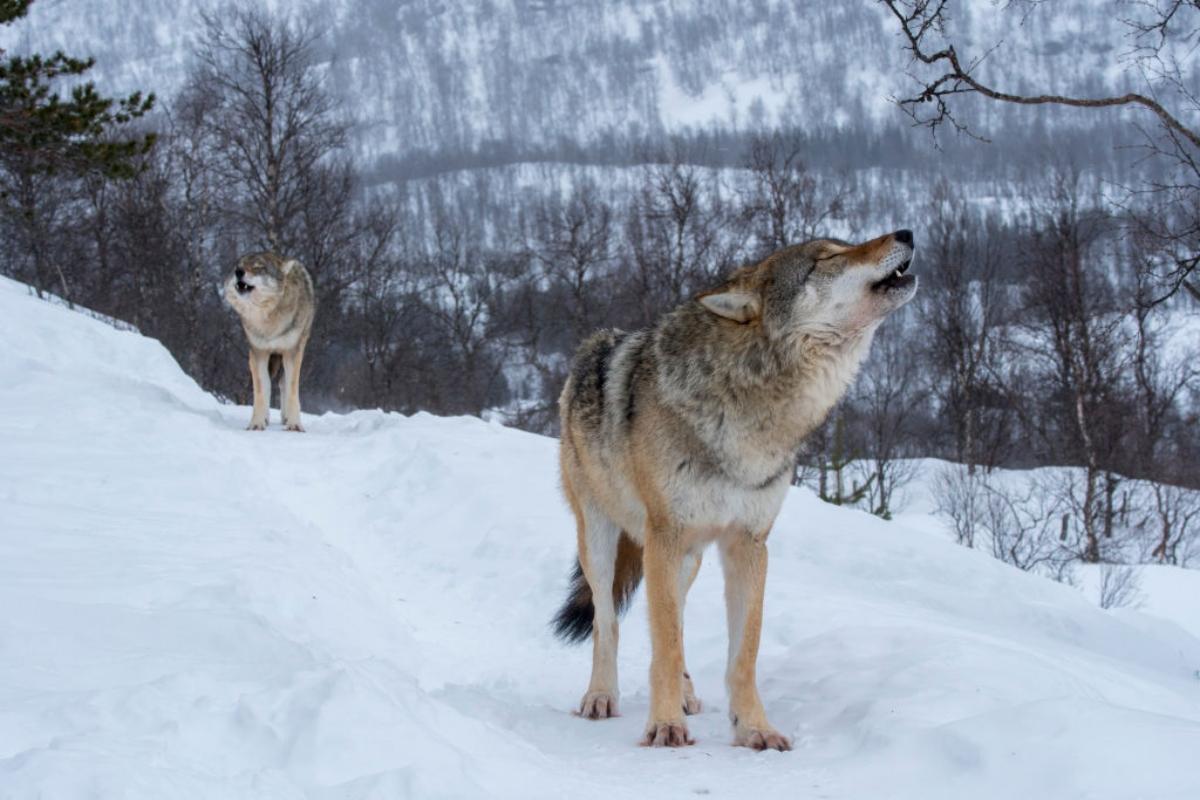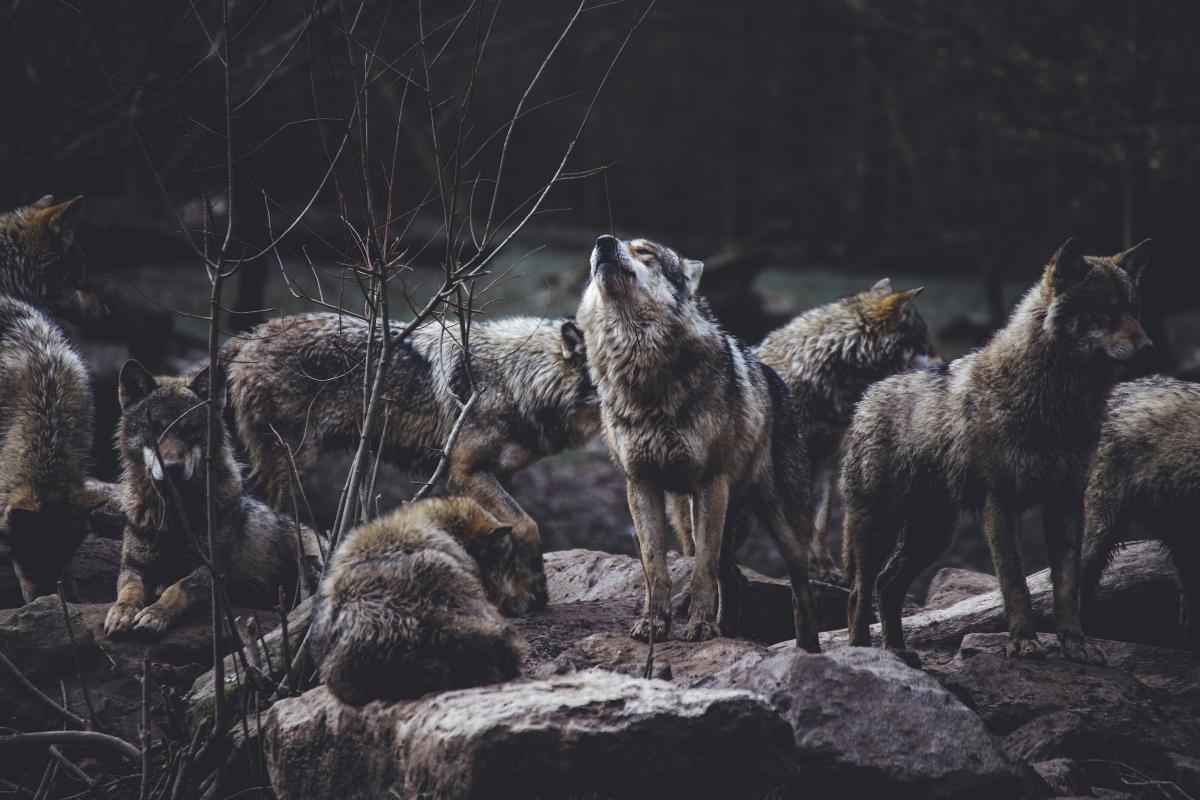Are Wolves Really Howling at the Moon? A Look at What's Really Going On
Published Oct. 9 2023, 11:48 a.m. ET

The Gist:
- One of the most commonly held beliefs people have about wolves is that they howl at the moon.
- Many believe a full moon is when wolves are most likely to howl at the moon.
- However, the idea of the "wolves howling at the moon" is more of a myth than a fact about the animals.
When a full moon is approaching, people may expect to hear wolves letting out howls during the moonlit night. Despite the persistent myths about werewolves and even regular wolves howling at the moon, these aren't based in fact. Here's why research shows wolves could be howling at the moon and what they're doing.
Why do wolves howl at the moon?
While wolves certainly do howl, they're not technically howling "at" the moon, no matter what storybooks may say. According to the Smithsonian, although you tend to hear wolves howling at night, they aren't directing their howls toward the moon.
The Smithsonian explains that one of the primary reasons for a wolf to howl is as a "social rally call," in other words, to draw the pack of wolves together. Another reason is to let wolves in the pack know it's time to go out on a hunt (or that they've located prey and require assistance).
Wolves are also known to howl to mark their territory—sending out a warning to animals encroaching on their territory, as they don't welcome wolves from outside their own pack.
As Wonderopolis explains, wolves may also howl to alert one another about their location. When wolves become separated from the rest of the pack, they can howl to let the pack know and tell them where they are. The Smithsonian explains that a lost wolf can let out what we call a "lonesome howl," which is short and high in pitch, and if the pack answers, the lost wolf can then use deeper howls to indicate its location.

Wolves howl at a wildlife park in northern Norway.
Do wolves really howl at the moon?
Even if it may seem like wolves are always howling more during a full moon or just any time when the moon is out, it's generally a coincidence rather than two connected events. Wolves are simply more active at night, as Wonderopolis reminds us. They use the cover of the night to go out hunting for prey, and the moon may be out while they hunt. There isn't any evidence of wolves' behavior being in any way linked to lunar phases.
Wonderopolis sheds more light on why wolves like to howl at the moon. That iconic image of a wolf tilting its snout toward the sky as it opens its mouth to howl? Of course, that looks like it's howling at the moon. However, experts believe this is an acoustic choice: it helps the sound travel farther than if they kept their snouts facing the ground.
So while it may seem that wolves howl at the moon, the timing and view of the moon is more a coincidence with the wolves' natural nocturnal habits.
